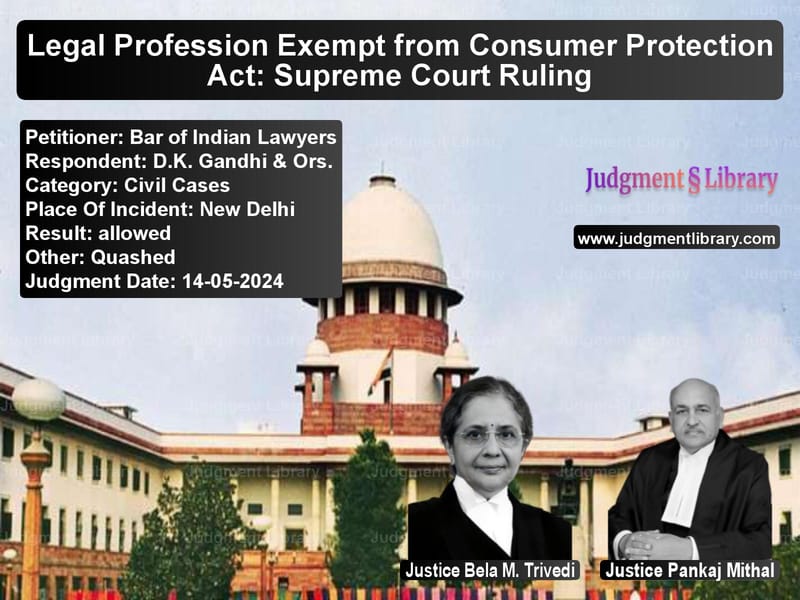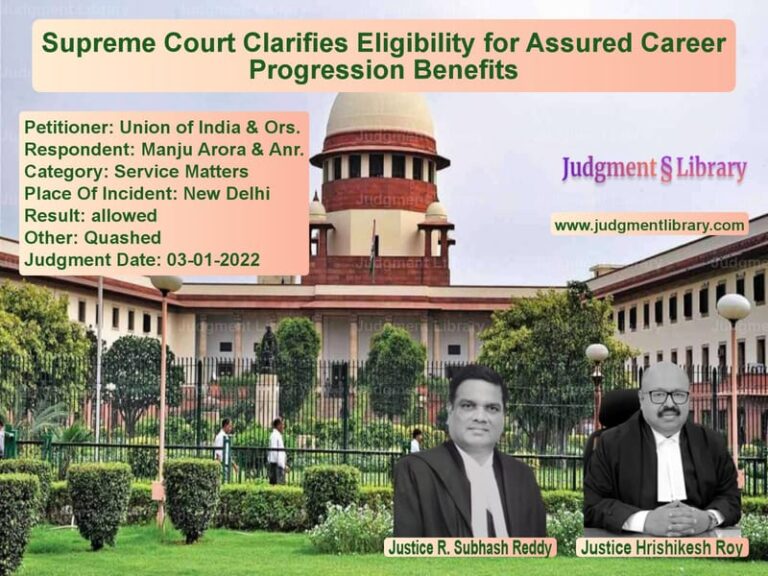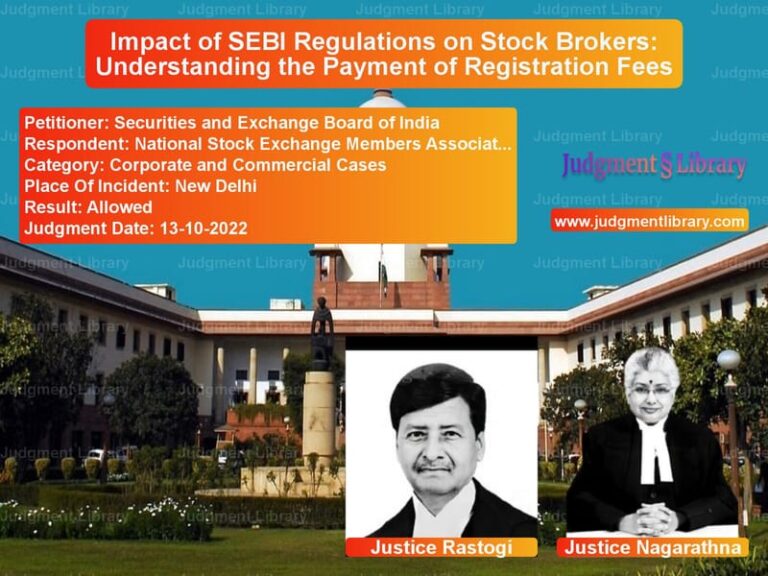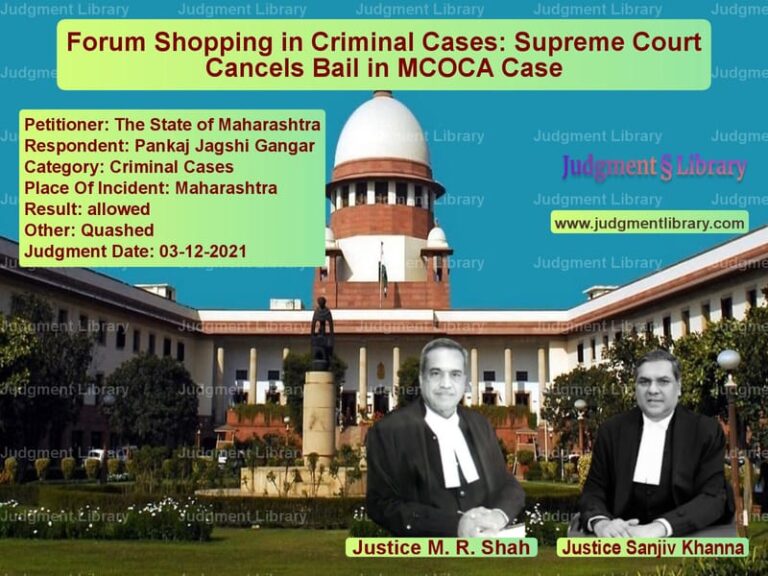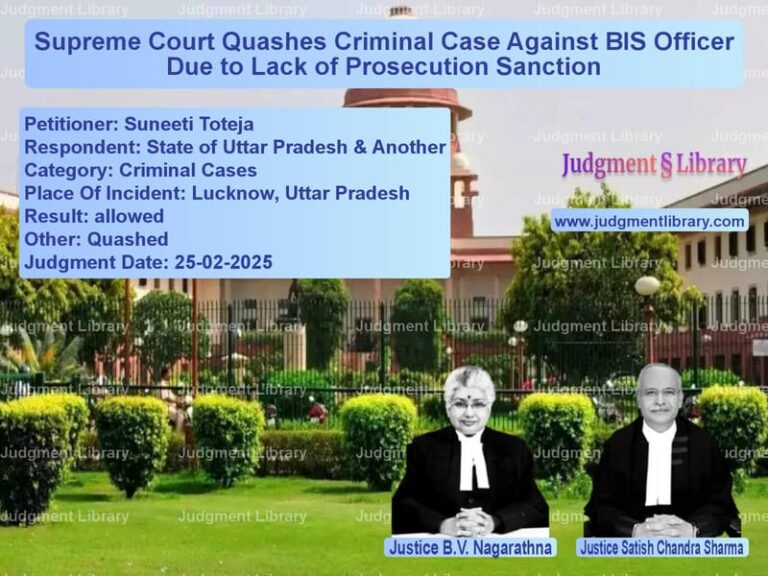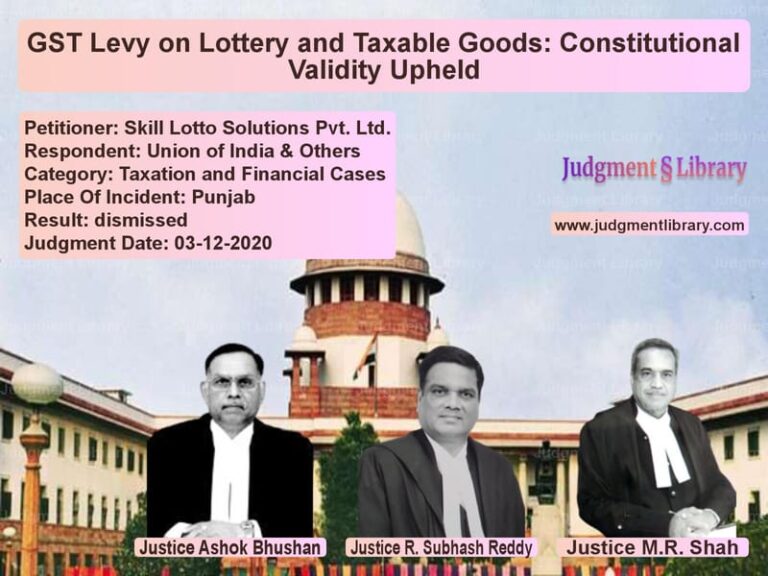Legal Profession Exempt from Consumer Protection Act: Supreme Court Ruling
The Supreme Court of India has delivered a landmark judgment in the case of Bar of Indian Lawyers v. D.K. Gandhi & Ors., ruling that advocates do not fall under the purview of the Consumer Protection Act, 1986/2019. The decision sets a significant precedent by clarifying that legal services provided by advocates are not ‘services’ as defined under the Act, thereby protecting the legal profession from consumer complaints.
Background of the Case
The case arose from a complaint filed by D.K. Gandhi against his advocate before the Consumer Disputes Redressal Forum, alleging deficiency in legal services. The dispute centered around the advocate’s handling of a case under the Negotiable Instruments Act, 1881, wherein the advocate allegedly withheld funds received on behalf of the client. The District Forum ruled in favor of the complainant, which was subsequently challenged before the State Commission and later the National Consumer Disputes Redressal Commission (NCDRC). The NCDRC upheld the District Forum’s ruling, leading to appeals before the Supreme Court.
Read also: https://judgmentlibrary.com/supreme-court-orders-restitution-in-landmark-land-auction-dispute/
Key Legal Question
The Supreme Court was tasked with determining:
- Whether legal services provided by advocates constitute ‘service’ under the Consumer Protection Act.
- Whether an advocate can be held liable for deficiency in service under consumer protection laws.
- Whether the Advocates Act, 1961, which governs professional misconduct, overrides consumer protection laws.
Arguments by the Petitioners (Bar of Indian Lawyers & Others)
The petitioners, including the Bar Council of India and various bar associations, made the following arguments:
- The legal profession is not a trade or business and is governed by the Advocates Act, 1961, which has its own disciplinary mechanisms.
- Advocates have a unique duty—not only to clients but also to the courts and the administration of justice.
- Legal services involve professional judgment, unlike commercial services that follow defined standards.
- Holding lawyers liable under the Consumer Protection Act would open floodgates to frivolous litigation.
- The concept of ‘service’ under consumer laws does not align with the nature of legal practice.
Arguments by the Respondents (D.K. Gandhi & Others)
The respondents contended:
- Legal services are offered for consideration, similar to other professional services like medicine and architecture.
- The consumer protection law is designed to safeguard clients against inefficiency and negligence.
- If medical professionals are covered under consumer laws, lawyers should also be subject to similar scrutiny.
Supreme Court’s Analysis
The Supreme Court thoroughly examined the Consumer Protection Act and its applicability to advocates. The Court’s key findings included:
- Legislative Intent: The Consumer Protection Act was never meant to include professionals such as advocates.
- Nature of Legal Services: Advocates act as fiduciaries and representatives in court, bound by strict professional ethics.
- Existence of a Special Law: The Advocates Act, 1961, already provides a framework for addressing professional misconduct.
- Judicial Precedents: The Court distinguished legal services from medical services, noting that doctors operate under objective standards, whereas legal outcomes depend on courts, judges, and multiple variables beyond an advocate’s control.
- Public Interest Considerations: Allowing consumer complaints against advocates would disrupt the administration of justice.
Final Judgment
The Supreme Court ruled:
- Legal services provided by advocates do not fall within the definition of ‘service’ under the Consumer Protection Act.
- The disciplinary framework under the Advocates Act, 1961, remains the primary mechanism for addressing grievances against advocates.
- Clients cannot approach consumer forums for complaints against lawyers, and such matters must be taken up with the Bar Council.
- The NCDRC’s decision was overturned, and consumer complaints against lawyers are now legally untenable.
Impact of the Judgment
This ruling has far-reaching consequences:
- It safeguards advocates from consumer litigation, ensuring the independence of the legal profession.
- It reinforces the authority of the Bar Council in regulating legal professionals.
- It clarifies that client dissatisfaction should be addressed through legal ethics boards rather than consumer forums.
- It prevents the misuse of consumer laws to harass legal professionals.
Conclusion
The Supreme Court’s judgment in Bar of Indian Lawyers v. D.K. Gandhi & Ors. reaffirms that the legal profession is unique and cannot be subjected to consumer protection laws. The ruling underscores the importance of maintaining professional autonomy while ensuring that advocates remain accountable under the Advocates Act, 1961. This landmark decision solidifies the legal profession’s distinction from commercial services and protects it from unwarranted litigation.
Read also: https://judgmentlibrary.com/supreme-court-orders-fresh-hearing-in-bihar-land-compensation-dispute/
Petitioner Name: Bar of Indian Lawyers.Respondent Name: D.K. Gandhi & Ors..Judgment By: Justice Bela M. Trivedi, Justice Pankaj Mithal.Place Of Incident: New Delhi.Judgment Date: 14-05-2024.
Don’t miss out on the full details! Download the complete judgment in PDF format below and gain valuable insights instantly!
Download Judgment: bar-of-indian-lawyer-vs-d.k.-gandhi-&-ors.-supreme-court-of-india-judgment-dated-14-05-2024.pdf
Directly Download Judgment: Directly download this Judgment
See all petitions in Legal Malpractice
See all petitions in Consumer Rights
See all petitions in Other Cases
See all petitions in Judgment by Bela M. Trivedi
See all petitions in Judgment by Pankaj Mithal
See all petitions in allowed
See all petitions in Quashed
See all petitions in supreme court of India judgments May 2024
See all petitions in 2024 judgments
See all posts in Civil Cases Category
See all allowed petitions in Civil Cases Category
See all Dismissed petitions in Civil Cases Category
See all partially allowed petitions in Civil Cases Category

